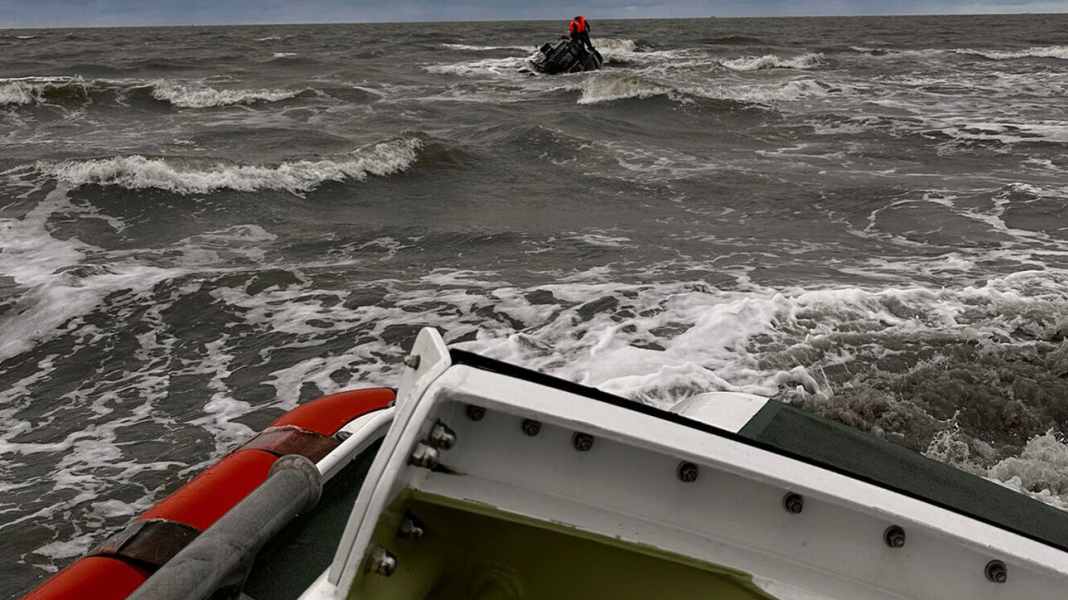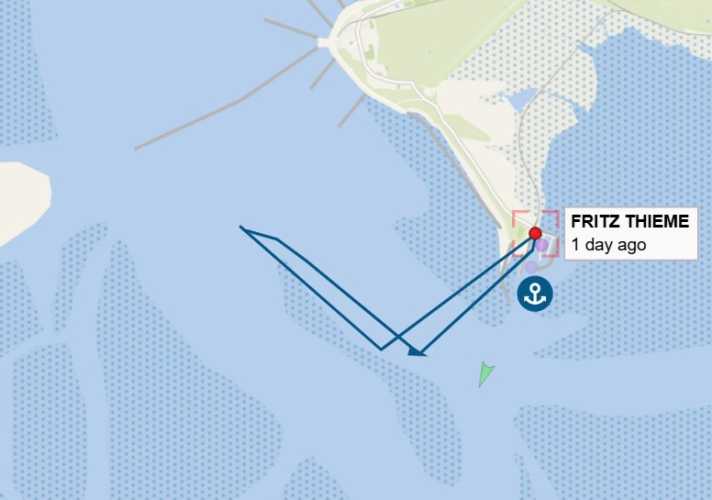In distress: Dramatic rescue operation in the Seegatt between Spiekeroog and Wangerooge
Ursula Meer
· 17.10.2025

A pleasure craft has run aground on a sandbank in a challenging sea inlet between the East Frisian islands of Spiekeroog and Wangerooge. The two men on board were in acute mortal danger and could only be rescued by a naval helicopter. The foreman of the Wangerooge volunteer station was alerted by acquaintances of the crew in distress and immediately initiated rescue measures. The German Maritime Rescue Co-ordination Centre (MRCC) in Bremen immediately informed the navy's SAR control centre in Glücksburg, which diverted a helicopter that was already in the air to the scene of the accident.

Failed rescue attempts from the water
Both a cutter fishing nearby and the Wangeroog sea rescue boat attempted to reach the shipwrecked men. The sea rescuers came within a few metres of the boat stranded on a sandbank, but were unable to make a successful rescue attempt due to the life-threatening current in this area. Any attempt to get people into the water would have been extremely dangerous.
Luckily for the casualties, a navy helicopter happened to be in the air at the time for a winch exercise with the rescue cruiser from the Nordstrand station. It was able to immediately head for the scene of the accident. The naval aviators rescued the two men from the wreck one after the other using a rescue basket. The boat had to be abandoned and initially remained on the sandbank. It is to be salvaged today, Friday.
Circumstances unknown
It is not yet known why the boat got stuck in the Seegatt. The Wilhelmshaven waterway police have started an investigation. The time at which the accident occurred was not reported by the sea rescuers, so no conclusions can be drawn about the wind and current conditions. In principle, even an engine failure in a tidal area with strong currents can put skippers in distress.
Treacherous sandbanks in the sea channels
The Seegatten, the sea area between the East Frisian Islands, can be challenging for water sports enthusiasts. The fairways lead past dangerous sandbanks. Between Spiekeroog and Wangerooge, Buhne H also protrudes far into the Seegatt. Sands and groynes make careful navigation essential. In view of the strong currents and possible surf waves, stranding in this region is very dangerous for the boat, crew and rescuers.
Due to the natural dynamic processes in the tidal area, the fairways can change constantly. For example, according to a report from the BSH on 20 May this year, the area in which the pleasure craft is now stranded has changed from -1.80m to +0.20m since the current nautical charts went to press - a difference in depth of two metres, which can mean that boats no longer have the necessary hand's breadth of water under their keel even if there is nothing on the surface to indicate the shoal. The sandbank is currently moving northwards into the Seegatt.
If you want to navigate safely through the seas, you should update your paper nautical charts and/or update your electronic navigation system and find out about the current situation before setting off.
